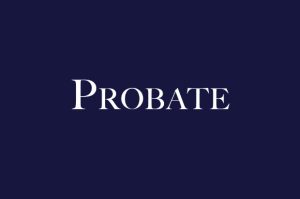Estate Planning & Child Home Care
In the first place, you reserve no privilege to reside in the house. Second, on the off chance that you are guaranteeing a derivation for any interest on the home loan or land charges on your return you reserve no privilege to do such. The best way to clear up this is to probate her bequest. On the off chance that there is a will that accommodates you getting the home, probate the will. In the event that she passed on intestate, you can request the court to be named manager to permit you to represent the home. One way or another you want to manage her home, pay all obligations and duties, and afterward disseminate the land to whoever is qualified for it under the will or the laws of intestate progression. At last, you want a bequests lawyer to help you in this extremely past due process.
Nobody is qualified to do anything with the house until a Personal Representative is designated by the court. You didn’t make reference to whether there was a Will, so I am expecting there was not one. That implies that every one of you should settle on one of you to be in control and be named as the Personal Representative. This will be a difficult task to organize getting understanding among every one of you with respect to the issues in general. On the off chance that ALL of you settle on one individual, the probate should be possible casually (without the requirement for a consultation). That would be speedier and less expensive. You could do it without anyone’s help, however, I recommend reaching a legal counselor.
What To Do With The Home
Managing the passing of a parent is testing, however selling their home can be full of hidden explosives, especially in the event that they pass on without a will. Relatives consumed by misery might not be able to decide, leaving homes that might have proactively mulled fall further into dilapidation. All might hold onto close-to-home connections and have unreasonable assumptions regarding what the property ought to sell for.
The errand can be a troublesome and long interaction or moderately simple and easy. Much relies upon the main beneficiaries’ capacity to request help and employing an expert who realizes the nearby real estate market. Specialists say the sooner the cycle starts, the more straightforward it will be. Guardians can make strides while they’re alive to assist with warding off hostile difficulties.
FAQ
1. Medicaid Planning Attorneys help with what?
Medicaid Planning Attorneys help with determining any possible health hazards you come across or any illnesses you may have. These lawyers can also help with planning widow any future healthcare you may need instantly rather than the hospitals or nurses finding out. A Medicaid planning attorney can protect you from any possible future harm for yourself to prevent any mistakes and have you live longer than if you didn’t plan with this sort of attorney. A Medicaid Planning Attorney goes along with the Estate Plan Lawyers and goes with the estate plan package.
2. Creating a will and trust hard?
Planning what you want is easy but doing the whole legal action is hard unless you have legal experience. A legal attorney can make this whole preparation much easier with further information you won’t even know about. With an estate planning lawyer, everything will be effortless.
3. Survivorship trust is what?
Survivorship trust is a joint tenancy agreement that goes towards your spouse after you pass. With this trust, you can help your spouse with skipping the probate process and ensure survival at its fittest when you obtain this kind of trust for the safety of your wife or husband.
4. Beneficiary of a trust does what?
All beneficiaries have the responsibility to keep a check on their transfers and understand the final closure of the deal made with the trustee with the trust document.
5. Get paid to take care of your loved ones in NYC possible?
It’s been recently acceptable to get paid to care for a family member suffering from Alzheimer’s or any other kind of severe disabilities where someone needs to be looked over. Specifically in New York State, you can take a 12-week leave to do this.
6. Trust lawyers & legal consultants, what are the differences between them?
Trust lawyers are legal experts who can give you asset protection and have the legal power to do so. They have the right to go to court with you and have any documents you have purchased with these trust lawyers. While a legal consultant only consults you with what is preferred to get but can’t give you the right to give it to you. With our lawyers, we can do both.
7. Does a trust override a will?
No, it doesn’t. The trust is an addition to the Will and instructs whoever has the legal right, according to you, to own specific assets that you own. A Will has an executor giving those instructions on what to do while the trustee transfers assets to your beneficiaries. Beneficiaries can be those you owe debts to so it’s important to have a trust with your Will.
8. Power of attorney lawyers is how much?
A power of attorney can depend on the price but can go from $250 to $350 per hour but with Morgan Legal Group P.C. we charge $300 for this service of protection.
9. Uniform Death Act would be what?
The Uniform Death Act determines how and when you’ve died. This can help further documentation stating the decedent’s whereabouts or lifestyle.
10. Collecting social security on deceased spouse and how do I do it?
If you’re married, you can share your inheritance, no matter what it is, with your spouse but with an estate plan, you can guide your assets to whoever you wish since it’s your own assets you own. An estate plan can not only give you legal ownership of everything but you can transfer it to those who need it.









